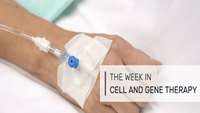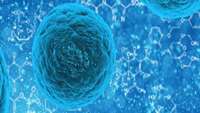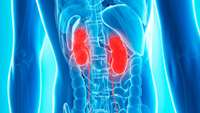Better education needed for patients' improved understanding of gene therapies
A new review of research bringing together patient, carer and public views of cell and gene therapies has highlighted a need for appropriate education to better inform people including how clinical trials work and the risks and benefits of various treatments.
Gene discovery could help prevent heart attacks
Researchers at the University of Virginia have shed light on how our genes affect our risk for coronary artery disease, the most common form of heart disease. In addition to identifying gene variants that influence risk, they found that one gene in particular appears to have a protective effect.
Animal study shows human brain cells repair damage in multiple sclerosis
A new study shows that when specific human brain cells are transplanted into animal models of multiple sclerosis and other white matter diseases, the cells repair damage and restore function. The study provides one of the final pieces of scientific evidence necessary to advance this treatment strategy to clinical trials.
CRISPR-edited CAR T cells enhance fight against blood cancers
Knocking out a protein known to stifle T cell activation on CAR T cells using the CRISPR/Cas9 technology enhanced the engineered T cells' ability to eliminate blood cancers, according to new preclinical data from researchers in the Perelman School of Medicine at the University of Pennsylvania and Penn's Abramson Cancer Center.
CAR T cell therapy effective as first-line treatment for high-risk large B-cell lymphoma
A study led by researchers at The University of Texas MD Anderson Cancer Center found that axi-cel, an autologous anti-CD19 chimeric antigen receptor (CAR) T cell therapy, is a safe and effective first-line therapy for patients with high-risk large B-cell lymphoma (LBCL), a group with an urgent need for new and effective treatments.
£26 million for spin-out developing advanced liver damage cell therapy
Resolution Therapeutics Ltd, a spin-out from the Centre for Regenerative Medicine (both Edinburgh, UK), has secured £26 million to further their research into a macrophage-based cell therapy targeting liver cirrhosis.
Expanding the toolbox for transcription factor-mediated iPSC differentiation
Scientists at the Center for Regenerative Therapies Dresden (CRTD) at TU Dresden (Dresden, Germany), Harvard University (MA, USA) and the University of Bonn (Bonn, Germany) have developed a method to extract hundreds of different cells from induced pluripotent stem cells (iPSCs) using transcription factors.
CRISPR Technologies for the New Era of Cell and Gene Therapy
Experts will discuss how they use new CRISPR technologies to advance their cell and gene therapy research.
New CAR-T therapy shows promise against neuroblastoma
A novel CAR-T therapy has been developed by researchers at University College London (UK), with the purpose of targeting cancerous tumors. The investigators noted that the therapy has shown promising early results in children with neuroblastoma.
Mini kidneys developed using cutting-edge technology involving stem cells
New cutting-edge technology has been used to bioprint miniature human kidneys in the lab. The team, which comprises of researchers from the Murdoch Children’s Research Institute (Parkville, Australia) and Organovo (CA, USA), hope that these mini kidneys can be used for the treatment of kidney failure and possibly lab-grown transplant tissues.












